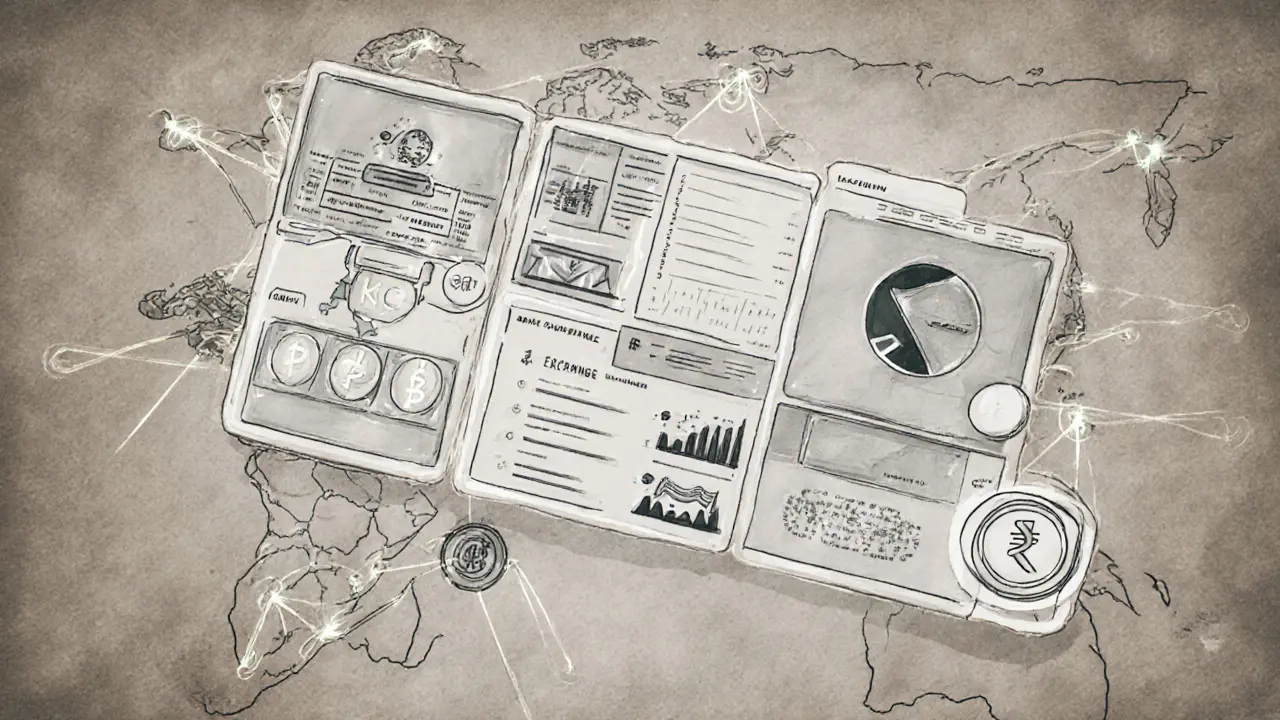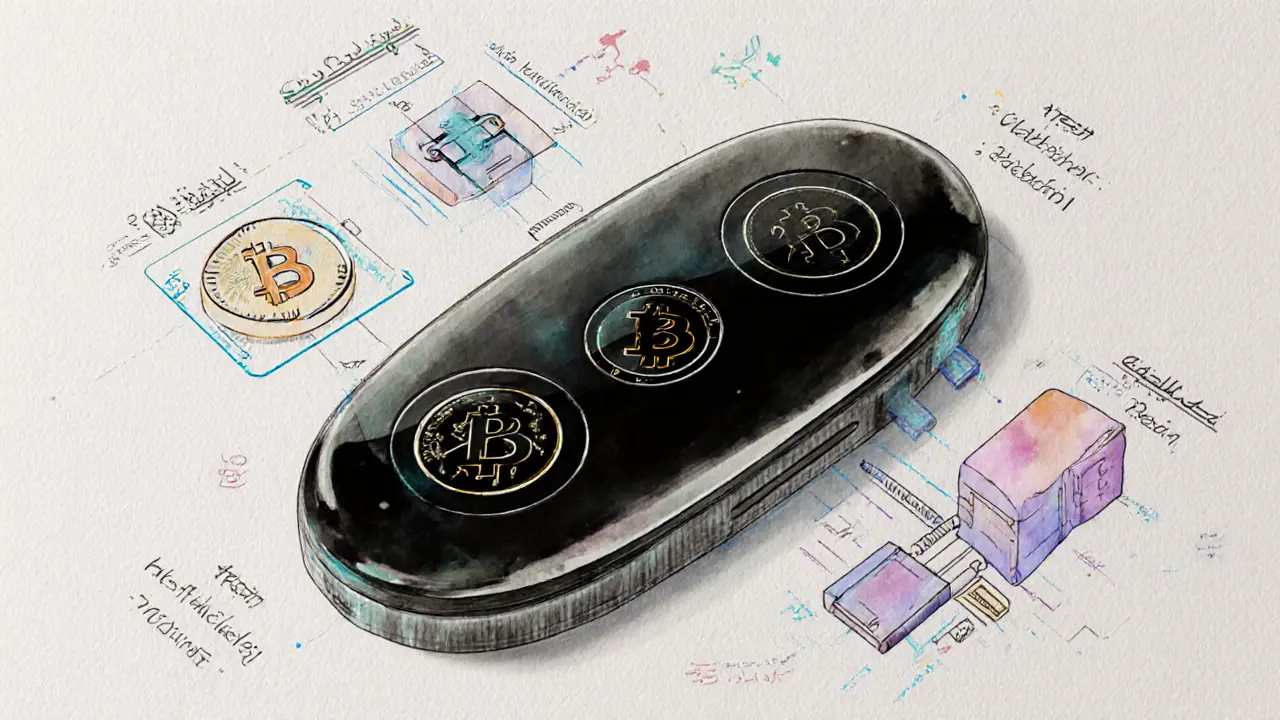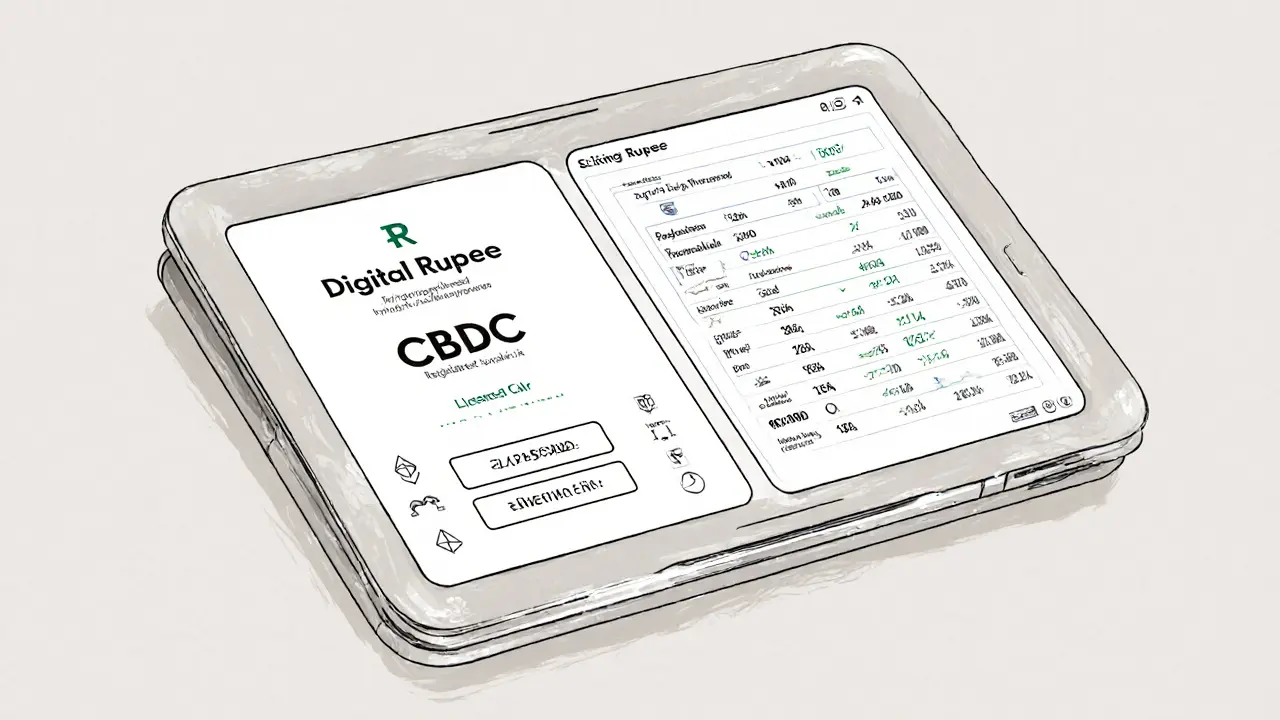Pakistan Virtual Assets Regulatory Authority (PVARA) for crypto oversight: What you need to know in 2025

PVARA License Eligibility Checker
Business Eligibility Assessment
Check if your business meets basic requirements to apply for PVARA licensing. This tool provides preliminary eligibility guidance only.
PVARA Eligibility Result
Before July 2025, owning or trading cryptocurrency in Pakistan was a legal gray zone. The State Bank of Pakistan had warned against it, but no law explicitly banned it. Millions of Pakistanis used crypto anyway-sending remittances, investing in Bitcoin, or using decentralized exchanges. That changed when President Asif Ali Zardari signed the Virtual Assets Regulatory Authority Ordinance 2025. Out of nowhere, Pakistan didn’t just regulate crypto-it created a whole new government body to run it: the Pakistan Virtual Assets Regulatory Authority (PVARA).
What is PVARA, and why does it matter?
PVARA isn’t another department tucked inside the Finance Ministry. It’s an independent federal regulator with full authority over every virtual asset activity in Pakistan. That includes crypto exchanges, wallet providers, staking platforms, NFT marketplaces, and even tokenized asset services. If you’re offering any service tied to digital assets in Pakistan, you need PVARA’s license-or you’re breaking the law. This isn’t just about control. It’s about legitimacy. For years, Pakistan’s crypto users operated in the shadows. Now, the government is inviting global players to build compliant businesses here. PVARA’s job is to make sure those businesses don’t become money laundering channels. It’s also supposed to protect everyday users from scams, rug pulls, and unregulated platforms.Who runs PVARA, and how is it structured?
Bilal bin Saqib, Minister of State for Crypto and Blockchain, leads PVARA as its chair. He’s not just a figurehead-he’s actively reaching out to international firms. His message is clear: if you’re licensed in the UAE, Singapore, or the EU, you’re welcome to apply. PVARA doesn’t work alone. It coordinates with three other key bodies:- Pakistan Digital Assets Authority (PDAA) - Focuses on infrastructure, tech standards, and blockchain development.
- Pakistan Crypto Council (PCC) - Acts as an industry advisory group with private sector input.
- State Bank of Pakistan (SBP) - Still in charge of monetary policy and now leading the CBDC pilot.
How does PVARA enforce rules?
PVARA has teeth. It can:- Issue or revoke operating licenses
- Conduct surprise audits of crypto firms
- Impose fines up to millions of rupees for violations
- Shut down unlicensed platforms
- Require full KYC and AML compliance matching FATF standards
- Company registration and ownership structure
- Proof of existing regulatory licenses
- Technical security protocols (cold storage, multi-sig, penetration testing reports)
- Revenue and assets under management figures
- Compliance history-no past fines or sanctions
- A detailed plan for operating in Pakistan, including customer support and local data storage

What does this mean for regular users?
If you’re just holding Bitcoin or sending crypto to family abroad, you’re not directly regulated. But the platforms you use are. That changes everything. Before PVARA, you might’ve used a Telegram-based exchange with no customer support, no refunds, and no accountability. Now, those platforms are illegal. Legitimate exchanges will have:- Verified customer service teams in Pakistan
- Clear terms of service and dispute resolution
- Insurance for user funds (likely required by PVARA)
- Real-time transaction reporting to authorities
How does PVARA compare to other countries?
Most countries took years to regulate crypto. Some still haven’t. Pakistan did it in under three months after drafting the law. It didn’t copy one model-it mixed the best parts:- Like the UAE (VARA): A single regulator with broad powers.
- Like Singapore (MAS): Sandboxes for innovation and testing.
- Like the EU (MiCA): Strict AML/KYC, transparency, and investor protection.
- Like India: No outright ban, but heavy oversight to control risk.

What’s next for PVARA?
Right now, PVARA is in the early stage of licensing. The first Expressions of Interest (EoIs) were submitted in August 2025. The first licenses are expected by Q1 2026. The State Bank of Pakistan is preparing its CBDC pilot, which could launch as early as mid-2026. That means you might soon be able to pay bills, send money, or buy groceries using a government-backed digital rupee-while also using regulated Bitcoin or Ethereum for investment. PVARA also plans to launch a public education campaign. Many Pakistanis still think crypto is a get-rich-quick scheme. The authority wants to teach real financial literacy: how to store assets safely, how to spot scams, and how to understand blockchain’s role in the economy.What happens if you ignore PVARA?
Operating a crypto exchange, wallet, or payment service without a PVARA license is now a criminal offense. Fines can reach up to PKR 50 million (around $180,000 USD). Individuals running unlicensed platforms could face imprisonment. Even if you’re just a user, be careful. If you use an unlicensed platform that gets shut down, you lose your money-and you have no legal recourse. PVARA won’t help you recover funds from offshore exchanges that never applied for a license.Final thoughts: A new era for Pakistan’s digital economy
Pakistan didn’t ban crypto. It didn’t ignore it. It took control. PVARA is a bold move. It turns a problem-unregulated digital finance-into an opportunity. It opens the door for global fintech investment, reduces reliance on expensive remittance corridors, and brings millions of unbanked citizens into the formal financial system. The real test isn’t the law on paper. It’s whether PVARA can enforce it fairly, attract quality firms, and protect everyday users. So far, the signals are strong. The world’s biggest crypto firms are watching. And now, they have a clear path to enter one of Asia’s largest untapped markets.Is crypto legal in Pakistan now?
Yes-but only through licensed providers. Owning crypto is legal, but operating or using unlicensed exchanges, wallets, or trading platforms is illegal. All virtual asset services must be authorized by PVARA.
Can I still use Binance or Coinbase in Pakistan?
Not unless they get licensed by PVARA. As of October 2025, neither Binance nor Coinbase has applied. You can still access them technically, but they’re operating illegally in Pakistan. Using them puts your funds at risk and offers no legal protection.
What’s the difference between PVARA and the State Bank’s CBDC?
PVARA regulates private digital assets like Bitcoin and Ethereum. The State Bank of Pakistan is building the Digital Rupee, a government-issued digital currency. They’re separate systems: one for decentralized crypto, one for central bank money. Both will coexist under the same legal framework.
Do I need a license if I’m just buying crypto for myself?
No. Individual users don’t need a license. Only businesses offering services like trading, custody, or payments must apply. But you must use only PVARA-licensed platforms to stay compliant and protected.
How long will it take to get a PVARA license?
The process isn’t finalized yet, but early estimates suggest 4-8 months after submitting a complete application. The first licenses are expected in early 2026. Firms with existing international licenses and strong compliance records will move faster.
Are NFTs and DeFi allowed under PVARA?
Yes, but only if offered through licensed VASPs. NFT marketplaces and DeFi protocols must apply for authorization and comply with AML rules. PVARA’s sandbox program is specifically designed to test these new models safely before full rollout.
Is there a minimum capital requirement to apply for a PVARA license?
The exact amount hasn’t been published yet, but industry insiders expect it to be between PKR 500 million and PKR 1 billion ($1.8-$3.6 million USD), depending on the type of service. This ensures only well-funded, serious operators enter the market.
Can foreign companies apply for a PVARA license?
Yes. PVARA actively encourages foreign firms already licensed in jurisdictions like the U.S., EU, UAE, or Singapore to apply. They must establish a local legal entity in Pakistan and appoint a local compliance officer.

Stephanie Alya
October 26, 2025 AT 06:33olufunmi ajibade
October 26, 2025 AT 07:30Chris Houser
October 26, 2025 AT 08:31William Burns
October 26, 2025 AT 09:32adam pop
October 26, 2025 AT 10:33Steve Roberts
October 26, 2025 AT 11:36John Dixon
October 26, 2025 AT 12:36Brody Dixon
October 26, 2025 AT 13:35Mike Kimberly
October 26, 2025 AT 14:38angela sastre
October 26, 2025 AT 15:37Will Atkinson
October 26, 2025 AT 16:38monica thomas
October 26, 2025 AT 17:38Edwin Davis
October 26, 2025 AT 18:38emma bullivant
October 26, 2025 AT 19:38Michael Hagerman
October 26, 2025 AT 20:37Laura Herrelop
October 26, 2025 AT 21:38Nisha Sharmal
October 26, 2025 AT 22:40Karla Alcantara
October 26, 2025 AT 23:41Jessica Smith
October 27, 2025 AT 00:41Manish Gupta
October 27, 2025 AT 01:43Gabrielle Loeser
October 27, 2025 AT 02:43Cyndy Mcquiston
October 27, 2025 AT 03:43Abby Gonzales Hoffman
October 27, 2025 AT 04:44Rampraveen Rani
October 27, 2025 AT 05:45ashish ramani
October 27, 2025 AT 06:46Natasha Nelson
October 27, 2025 AT 07:46Sarah Hannay
October 27, 2025 AT 08:47John E Owren
October 27, 2025 AT 09:46